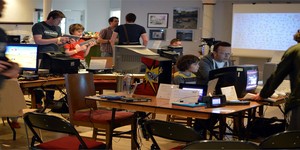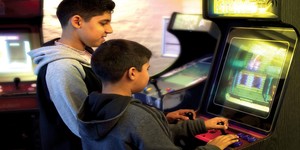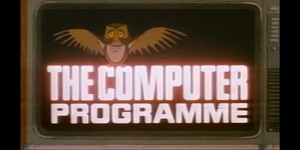Computing museums team up for Turing centenary
February 29, 2012 | 13:06
Companies: #bletchley-park #computer-history-museum #national-museum-of-computing #tnmoc

The National Museum of Computing in Bletchley Park has announced plans to team up with two other top computing museums to celebrate the centenary of Alan Turing, considered by many to be the father of computer science.
The museum has entered into a partnership with the Computer History Museum in California and the Heinz Nixdorf Museum in Germany to mark the historic milestone. As part of the event, three speakers will be invited to discuss their take on Turing's contribution to computing as his posthumous hundredth birthday is celebrated in memoriam.
George Dyson, author of Turing's Cathedral, will be first to speak on the 7th of March at the Computer History Museum in California. This is to be followed by a discussion with computer historian Professor Simon Lavington at Bletchley Park on the 26th of April. Finally, Dr Horst Zuse, son of noted computing pioneer Konrad Zuse, and Dr Paul Rojas will each chair a lecture on Turing's influence at the Heinz Nixdorf Museum on the 26th of May.
Turing's influence on modern computing is not to be underestimated. During his work at Bletchley Park as part of the code breaking efforts of World War II, Turing worked on what is generally considered to be one of the first true 'computers,' while his paper 'On Computable Numbers' is believed to be the first example of modern computer science theory.
Turing's most famous achievement is his thoughts on artificial intelligence, which gave birth to the Turing Test: a means by which a computer could be given a chance to masquerade as a human during a text-based chat session as a means of gauging 'intelligence.' This concept would give rise to CAPTCHAs - Completely Automated Public Turing test to tell Computers and Humans Apart - and the Voigt-Kampff test in Phillip K. Dick's Do Androids Dream of Electric Sheep, filmed as Blade Runner.
Sadly, Turing would commit suicide by way of cyanide-laced apple in June 1954 following his conviction for homosexuality - illegal in the UK at the time - and subsequent chemical castration. As much of his work was carried out in secret, it would be years before the public learned of his contributions to both the war effort and science in general.
Videos of the events from all three museums will be made available online, while members of the public are invited to submit questions for the first event via the @computerhistory Twitter account using the hashtag #turingscathedral.
The museum has entered into a partnership with the Computer History Museum in California and the Heinz Nixdorf Museum in Germany to mark the historic milestone. As part of the event, three speakers will be invited to discuss their take on Turing's contribution to computing as his posthumous hundredth birthday is celebrated in memoriam.
George Dyson, author of Turing's Cathedral, will be first to speak on the 7th of March at the Computer History Museum in California. This is to be followed by a discussion with computer historian Professor Simon Lavington at Bletchley Park on the 26th of April. Finally, Dr Horst Zuse, son of noted computing pioneer Konrad Zuse, and Dr Paul Rojas will each chair a lecture on Turing's influence at the Heinz Nixdorf Museum on the 26th of May.
Turing's influence on modern computing is not to be underestimated. During his work at Bletchley Park as part of the code breaking efforts of World War II, Turing worked on what is generally considered to be one of the first true 'computers,' while his paper 'On Computable Numbers' is believed to be the first example of modern computer science theory.
Turing's most famous achievement is his thoughts on artificial intelligence, which gave birth to the Turing Test: a means by which a computer could be given a chance to masquerade as a human during a text-based chat session as a means of gauging 'intelligence.' This concept would give rise to CAPTCHAs - Completely Automated Public Turing test to tell Computers and Humans Apart - and the Voigt-Kampff test in Phillip K. Dick's Do Androids Dream of Electric Sheep, filmed as Blade Runner.
Sadly, Turing would commit suicide by way of cyanide-laced apple in June 1954 following his conviction for homosexuality - illegal in the UK at the time - and subsequent chemical castration. As much of his work was carried out in secret, it would be years before the public learned of his contributions to both the war effort and science in general.
Videos of the events from all three museums will be made available online, while members of the public are invited to submit questions for the first event via the @computerhistory Twitter account using the hashtag #turingscathedral.

MSI MPG Velox 100R Chassis Review
October 14 2021 | 15:04








Want to comment? Please log in.